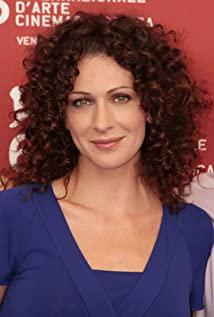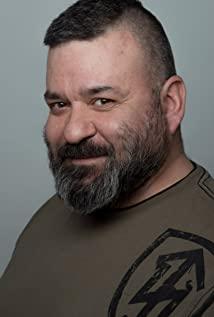This article was first published on the WeChat public account [Mo Kongyu]
I remember seeing Schopenhauer's point of view translated by others. There is such a sentence: "We can do what we want, but we can't think what we want."
I've never been able to clearly understand the difference between the two: Do what you want to do, isn't it just to get what you want? Its essence is to think what you think? Why can't it be? But when I finished watching "Queen of Figure Skating", I seemed to suddenly understand the truth.
"Queen of Figure Skating" is an inspirational love movie directed by Russian director Oleg Trofim. The arduous journey from Belarus to the queen of Russian figure skating and an enviable love.
This movie has two parts, one is inspirational and the other is love. And what I want to talk about in this article is one, inspirational.
After watching so many inspirational films, it can be said that this film is not outstanding. However, the motivational motivation and definition of success promoted by this film are not the same as the definition of "success" in traditional Chinese education. This is what makes me feel that this film is worth talking about.
In Schopenhauer's words, Nadya stands for "doing what you want", while Nadya's first boyfriend Leonav (played by Milos Bikovic) demonstrates "doing what you want". ".
And the core of this movie is to illustrate the first one: "Do what you want to do", and success will naturally be with you.
One, "do what you want to do", you can reap the joy of success no matter when and where you are.
Nadya has been obsessed with figure skating since she was a child.
But her yearning for figure skating is not because of her longing that she wants to get on a gorgeous stage through figure skating. She just has a feeling that her life was born for figure skating, and she even believes that she is "like a figure skater". Without figure skating, her life might wither.
This is also the protagonist of Nadya and ordinary inspirational films, such as "Wrestle! Dad", a different place. It is also different from ordinary Chinese education, "you must enter a certain university and reach a certain peak, then you can be considered a real success".
She doesn't want to get anything through figure skating, what she wants, from beginning to end, is only "figure skating". What level of her own figure skating skills has reached, what kind of dream she can use figure skating to create for herself and her loved ones, and what kind of happiness she can bring to herself and others with figure skating, that is her most. things that matter.
It is a pity that Nadya is full of enthusiasm in the sport of figure skating, but lacks talent. Professional trainer Irina (played by Maria Aronova), who just glanced at it, points out that Nadya's "poor coordination and legs are not straight enough to be worth her much thought".
But this cannot be a reason to prevent Nadya from abandoning her "figure skating dream". And even if her mother is sick and her family is poor, she is willing to do her best to help Nadya achieve her happiness. She didn't know much about the sport of figure skating, but she gave Nadya the two best training methods in simple words:
One is: "Talent is that you do everything in your own way, and no one else can do it."
Two: "Everyone falls."
Although these two sentences are simple, the former gave Nadya the motivation to cross the gap of talent, and the latter gave her a reason to fight again and never give up in the face of difficulties.
Even this tells Nadya on another level: nothing can stop you from being happy through what you love, not even a faceless fall, even a heart-wrenching failure .
That's why, after the death of her mother, even though Nadya was dependent on others and had a sadness that she couldn't hide, she still worked hard every day to train herself. When she met Irina again, she could finally make an effort to make a "round and a half jump" to impress Irina and win her personal guidance.
That's why, after receiving the coach's guidance, she has not slept for nearly five years. Even if the hard work was boring and uninteresting, ordinary and unremarkable, but Nadya knew how worthwhile those days that were unspeakable and deep in memory, in order to overcome her inherent poor coordination problem, insist on self-training after regular group training. .
That's how she stood up after falling down in front of Leonav, how firm she was when she danced on the ice despite the pain.
Even more so, when she overcomes her illness and enters the Figure Skating World Cup again, even if she is disqualified from the competition, she will have fun with Sasha (played by Alexander Petrov) in the cheers of the crowd. How happy are you when you dance.
Nadya's success has never come from the podium after each competition, nor from the medals won after each competition, nor from the support of everyone after winning the medals. She just likes figure skating and the joy in the process of figure skating. And every progress is her success.
But Leonardo was different.
Second, there is no fault in "thinking what you think", but you can never control all the influencing factors with your own will. The success you imagined may not necessarily come as you expected.
When Leonaff was three years old, he was ignorant and ignorant when his mother put on his skates and forced him to the ice rink.
Her mother was very strict with him, even if it was her birthday, he could only go home and celebrate with her if he got a medal.
Every time he competes, he only feels that he is a qualified figure skater when he wins a medal.
Over the years, how could he have put in much less effort behind the scenes than Nadya, from a mediocre boy to the nation's premier figure skater?
But the biggest difference between Leonov and Nadya is this: he doesn't know what figure skating means to him? In his life, figure skating and eating are actually no different. He never knew why he insisted, nor whether he could give up. But if he wants to give up, or fails in figure skating, he seems to be branded as a "trash", which will frighten him.
He can only prove his worth by consistently winning medals and winning championships. But to get the first, he's like asking for the second. Having gained a lot, he wants the biggest.
Even in the end, for him, the medals he has won in the past are just foreshadowing, and he has only one goal: to win the figure skating World Cup championship.
So, before that, Leonardo, who insisted on "thinking what he thinks", never really enjoyed the joy of success, because he never thought he was successful.
But is Leonardo really a failure? He has reached a height that many people can't reach in their entire lives, but why did he not have the courage to give himself and Nadya a chance at the end of the film to dance his own style at the Figure Skating World Cup? The easily accessible stage was right beside him, but he didn't have the courage to turn around and step on it.
I remember a scene in the movie where Leonaf reluctantly told the heroine about the bitter history with a lonely face, and the heroine asked him if he regretted it.
Confused, he said indifferently, "These are just trophies, but they're all valuable, right?"
"Is it right?"
The heroine didn't answer, and the movie didn't give an answer explicitly.
But I want to answer: yes, no.
There are two specific definitions of success in the world: one is that everyone thinks that you are successful, and it is worldly success; the second is that you feel that you are successful, and it is your own success. Worldly success is success, self-success is also success, there is no distinction between high and low.
It's just that in China, few people know what it is like to think that they are successful. Here, they are mostly pursuing the first type. And Leonardo, too. Because I don't know what I want, others say it's a success, so I go after it myself.
"Think of what you think", try desperately to chase forward, and if you can't catch up, you will consider yourself a failure, denying all previous achievements, and even thinking that you are a failure and incompetent.
But Nadya is different, she is chasing "do what she wants to do". I'm happy because I did it. She's happier because she's done better, that's all.
The definition of success is different, the perception of yourself is different, and the road to success is also different.
I don't think any success is better or worse, after all, both are ways and means of motivating others.
It's just that if I can be clear about what I want to do and what I want, I will still choose to "do what I want to do".
After all, "doing what you want to do" can always be successful, and "thinking what you want" can only be "finally successful". That's too long, too tiring, I'm lazy, so choose the former.
View more about Ice reviews











